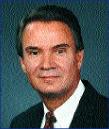Article
Washington Beat
Author(s):
Medicare: Seniors still aren't sure what's going on; Reimbursement: Are hospitals using physician practices to get larger Medicare payments; Lobbying: Medicare reform resuscitated?; Y2K: Time to test your readiness; Small Talk: Questioning your motivation
Washington Beat

By Michael Pretzer, Washington Editor
Medicare: Seniors still aren't sure what's going on
During the past couple of months, the Health Care Financing Administrationhas been mailing 56-page tomes to the millions of Medicare beneficiarieswho are eligible for Medicare+Choice. Medicare & You 2000, whichis supposed to bring America's senior citizens up to speed on managed careand the recent sundry changes in the health care program, arrived none toosoon. Here at the turn of the century, elderly patients are as bewilderedas ever by Medicare.
The seniors most likely to understand the nuances of Medicare are Californians.Approximately 1.5 million Golden State golden agers are enrolled in managedcare, making California the state with the largest number of managed careMedicare beneficiaries. Plus, California was a test state for Medicare& You 2000; seniors there received the book a year ago. Yet Medicareis largely a mystery to these beneficiaries, too.
Here's what the California HealthCare Foundation learned in a surveyof seniors taken earlier this year:
- Sixty percent are often confused about the health care system.
- Twenty-six percent say they don't know much about the Medicare program; a mere 18 percent say they know everything they need to know.
- Only 36 percent know that Medicare HMOs usually pay for prescription drugs, but 64 percent know that HMOs limit the selection of doctors.
When California seniors want to learn more about Medicare, where willthey turn? Probably not to Medicare & You. Only 30 percent evenrecall receiving it in 1998, and fewer than 10 percent say Medicare publicationsare the most helpful sources of information.
More likely, the elderly will turn to their physicians. The source mostfrequently cited as helpful--by 26 percent of those surveyed--is a Medicareprovider.
Y2K: Time to test your readiness

As the century draws to a close, worry about health care computer systemsbeing Y2K compliant has shifted. For months, HCFA's computers had been theconcern. Could the behemoth bureaucracy get its act together? Now it's providers--largeand small, but especially the small--who have observers worried.
Earlier this autumn, Gary Christoph, HCFA's chief information officer,told the House Committee on Science's Subcommittee on Technology that theagency was ready. "All of HCFA's internal systems have been renovated,fully tested, certified compliant, and implemented," he said. "Thisincludes the systems that manage the eligibility, enrollment, and premiuminformation of Medicare beneficiaries, and those that make payments to managedcare organizations that contract with HCFA. In addition, all of the externalclaims-processing systems--those operated by private insurance contractorsthat process Medicare fee-for-service claims and pay bills--have been fully-tested. . . and certified as compliant."
Still, Christoph was a little uneasy. He said Medicare remains at risk--"fromareas outside our direct control, namely the uncertain readiness of Medicareproviders. While we suspect that larger organizations are in better shape,we are concerned about the readiness of individual providers in rural andinner-city institutions."
Christoph urged providers to test their Y2K readiness with their Medicareclaims processors. "If providers don't test, they really don't knowwhether their claims submission will work."
Christoph isn't the only one worried about providers. Whitney Addington,the president of the American College of Physicians-American Society ofInternal Medicine, is another. Testifying before two House subcommittees,Addington told of the work of Nationwide Insurance, which processes MedicarePart B claims for about 7,500 physicians. By September, fewer than 10 percentof its clients had completed Y2K testing. Ominously, of those that had beentested, 56 percent weren't up to snuff. "Only 60 percent of those withcritical date failures have been able to resolve the errors and completetheir testing," Addington said.
Addington warned that doctors who wait too long to hire technicians todebug their systems will have another problem: finding a debugger duringa period of high demand--a period such as now, just a month before Y2K.
Reimbursement: Are hospitals using physician practices to get largerMedicare payments
The Department of Health and Human Services' Office of Inspector Generalseems a little suspicious. Hospitals that own physician practices may becapitalizing on the ownership to capture higher Medicare reimbursements,according to a recent OIG report. Though the OIG never uses the word fraud,it's hard to read the report without concluding that they think somethingfishy is going on.
For Medicare purposes, a hospital that owns a physician practice musttreat it in one of two ways. The hospital can consider the practice a freestandingentity, in which case Medicare uses its physician fee schedule to determinereimbursements for services rendered by the practice. Or the hospital canconsider the practice to be part of the hospital itself-an outpatient departmentof sorts-if the arrangement meets certain criteria. When the practice ispart of the hospital (provider-based, the government calls it), Medicarereimburses at a more generous rate, in part to cover the hospital's operatingcosts.
A few innocent, or not so innocent, omissions in filing can cause HCFAto reimburse hospitals incorrectly. "The net result," accordingto the OIG, is that "overhead and operating costs for these purchasedpractices are paid twice, or hospitals [receive] reimbursement for practicesthat do not meet the provider-based criteria."
Until recently, HCFA has been rather clueless about hospital ownershipof physician practices. For its report, the OIG looked at 200 hospitalsand found that half the time the Medicare intermediaries weren't aware ofa hospital's relationship with physician practices. So HCFA has done littleto correct the situation.
Meanwhile, the problem is costing the government millions of dollars,according to the OIG. And costing senior citizens directly. When a hospitalclaims its physician practices are provider-based, Medicare beneficiariesbecome responsible for 20 percent of the charges for both hospital and physicianservices. "If beneficiaries are being treated in facilities that donot meet the provider-based criteria, but hospitals are billing as if theydid, then beneficiaries are paying excessive coinsurance," says theOIG.
HCFA now requires that hospitals report their purchases of physicianpractices to the appropriate fiscal intermediaries. The OIG has additionalideas: Treat all physician practices as freestanding entities, and haveCongress legislate penalties for hospitals that fail to properly reporttheir ownership of physician practices.
Lobbying: Medicare reform resuscitated?
Last spring, significant Medicare reform was written off as a dead issue.A 17-member commission appointed by President Clinton to recommend changesthat would head off the Medicare trust fund's bankruptcy and ready the programfor baby boomers gave up on its assignment because its members couldn'tagree on a reform plan. We won't be hearing about big-time Medicare changesuntil after the next presidential election, most observers predicted.
The issue is now back--though not with any real vengeance. The Allianceto Improve Medicare, a large coalition of mostly business but includingthe American Medical Group Association and the American Hospital Association,has been trying to rally Congress. AIM opposes quick fixes, such as provider-paymentcuts, tax increases, and government price controls. It favors less bureaucracyand more plan and benefit options for seniors.
Coincidentally, senior citizens agree with AIM's assessments, accordingto a poll taken this fall for AIM. Sixty-nine percent think payment reductionsto doctors, hospitals, and health plans have a harmful effect; 73 percentthink beneficiaries should have a wider selection of plans; and 32 percentthink Medicare's biggest problem is too much bureaucracy.
AIM may keep Washington talking about Medicare, but it won't be ableto get Congress to act next year. Sen. John Breaux (D-LA), who chaired thepresidential Medicare commission, says that, though structural reform wouldhave better than a 50-50 chance of passing in the Senate, it would haveno chance in the House. "The House is adamant about not taking it up,"he says. "And we'll go to the elections arguing about whose fault itis that we have failure."

Sen. John Breaux (above)
Small Talk: Questioning your motivation
Apparently, doctors' allegiance to the Hippocratic oath--not to mentiontheir plain old work ethic--doesn't count for much these days. Writing inRoll Call, a newspaper that covers Washington politics, Rep. JohnShadegg (R-AZ) took a swipe at the profession as he derided the state ofAmerican medicine.
"Bluntly stated, in the real world of health care today, doctorsno longer work for or have any incentive to respond to the needs of theirpatients," he claimed. "Rather they work for and are forced torespond to the health care plans that hire and pay them."
Michael Pretzer. Washington Beat. Medical Economics 1999;22:38.





